The main draw of beets is their magical health-promoting attributes, which range from decreasing the risks of heart diseases to providing sustained energy. This healthy vegetable is so versatile that it can be used in salads, soups, curries, and desserts.

Beets, in my experience, fall into either love it or loath it category. Beetroot's dirt-like taste is the main reason for those who can't stand it. Those who love it look beyond beets' 'earthy' taste and prize them for the versatility beets lend to recipes ranging from appetizers to main dishes to desserts. In my kitchen, getting different varieties of beets in the CSA share, eating amazing food with beets on my global travels, and experiencing beets' health benefits in my personal life turned beets from being a side character to the main hero. My goal in demystifying beets is to grow this veggie's appreciation in our kitchens to promote beets' unbeatable culinary and health benefits.
Beets have a long history in the human diet
Beets have been present in the human diet for thousands of years, and for the most of that period, beets were primarily used as medicine. Ancient Greeks, Romans, and Jews were among the first to cultivate beets for beet greens. The root, in ancient times, had medicinal uses. The beetroot, red and round as we know it today, did not appear and become popular until the 16th century. The popularity of beetroot in recipes increased by the 19th century, mainly in central and eastern Europe. In 1900s , the most popular way to eat beets was in pickled form. According to the book Super Food: Beetroot, beetroot was the most available pickled vegetable after the Second World War. In my opinion, beetroot-- owing to people's heightened interest in whole foods and nutrition, a growing food blogging culture where bloggers invent new ways of cooking practically anything, and scientists' interest in the beets' medicinal benefits-- has made a splendid comeback in our diets in recent years.
Beets Facts: Buying/storing tips and nutrition information
Source: chart created by Traffic Light Cook based on extensive personal experience as well as information from the United States Department of Agriculture
Health benefits of beets
My earliest memories of beets are around my mom's beets/carrot/tomato soup, often accompanied by a verbal promotion, "Beets increase the amount of blood in your body," which she had heard from her elders. And she was not off. Beets are high in folate, a vitamin that promotes red blood cell growth, and lack of which can cause anemia. In addition to delivering a high dose of essential vitamins and minerals, beets have other health-promoting attributes.
In 1998, three U.S. scientists--Robert F. Furchgott, PhD, Louis J. Ignarro, PhD, and Ferid Murad, MD, PhD-- won the Nobel Prize in medicine for discovering Nitric Oxide (NO) as a signal molecule. Simplified, these scientists unveiled NOs magical role in preventing cardiovascular diseases. The role of NO has further been recognized in better functioning of the nervous system and preventing infections. Why I am harping on the benefits of NO: beets are a great source of nitrates and, hence, a natural source of increasing NO availability in our bodies, which in turn can unlock a host of health benefits [1].
Beets are also naturally high in betalain, the pigment that gives them their color. This powerful antioxidant offers anti-inflammatory and anti-cancer properties. In red beets, the pigment is known as betacyanin, and in golden/yellow beets, betaxanthin. This earthy vegetable is also a source of high fiber.
For centuries, beets have also been used as an aphrodisiac in many cultures. According to the book Beet the Odds, from the earliest times of medicine, beets were used to treat sexual performance, among other ailments. Here is a list of health benefits that scientists have linked with eating beets:
Beets: Other observations
Beeturia: Don't be alarmed if your urine or stool is reddish pink after eating beets. Research on this subject informs that 10-14% of beet eaters get the condition known as "beeturia." Although the condition is harmless, some studies suggest that people with iron deficiency or malabsorption are more likely to get it. If you do see pink, maybe it's worth talking with your physician to check iron levels [2].
Beet sugar: When I started using beets regularly during the beet season, I first researched whether eating beets added much sugar to my diet, as beets are also used to produce sugar. I found that sugar is made from white sugar beets, which have a higher sugar content of 20% compared to 8-10% for red beets. Moreover, a vast difference exists between consuming highly processed sugar (from beet) and natural beet, a naturally low-calorie food with 60 calories per cup.
Find Beet recipes on TLC
The real challenge (or bliss): How to incorporate beets into your diet?
If you already enjoy beets in your diet, hopefully, this information has reinforced your love of them. However, if you hate them, maybe I can convince you to give them another try. Here are some tips to help beets transition to your diet more easily.
- Try multiple times: if you have kids, your pediatrician probably told you it can take up to 8-10 tries before your child even tastes a new food. How about giving this awesome veggie at least a few tries? If you don't like one recipe, try another. If you don't like it raw, try cooking. If the earthy flavor is a huge issue, mask the flavor.
- Start with raw: Use raw grated beets in a salad or juice; raw beets offer the maximum nutrition. If you don't like the taste, add a favorite dressing and/or mix it with other favorite veggies. Adding an apple or orange to juices easily masks the earthy taste (stay tuned for the Beet energy juice recipe).
- Learn to cook beets: If I am not juicing beets, I often cook them to use in a variety of recipes--salads, soups (my favorite are borscht and my mom's simple beet/carrot/tomato soup), hummus, burgers, curries, roasted vegetables, and desserts (possibilities are endless). It is important to cook beets using a method that preserves maximum nutrition. Cooked beets develop a sweeter profile (no wonder, in Victorian times, they were used in desserts) and may be more palatable. I have tried almost every cooking method over the years and found the following effective in saving nutrition. I never boil beets as most nutrients leach into the boiling water.
- Steam it: Steam beets in a pressure cooker or over a stoptop in a steamer basket. Small beets can be steamed whole, but if they are bigger than 2", you may want to cut them in half. Always leave the beet skin and 1" of top on to save the nutrients.
- Roast it: preheat oven to 375°F. Trim the top and bottom parts, leaving beet skin on. Make shallow cuts in beets in a few places with a sharp knife; add beets with 2-4 tbsp water to an oven-proof dish covered with an oven-proof cover or aluminum foil. Roast for about one hour. If beets are bigger than 2", it may take longer (about 75 minutes) to roast them. Once roasted, insert a knife to check for doneness; you should be able to insert a knife into a roasted beet easily. Upon roasting, beets become sweeter and creamier.
- Steamed or roasted beets offer many possibilities for recipes, including soups, salads, curries, and more (stay tuned for awesome beet recipes). I often don't refrigerate roasted or steamed beets for over 2-3 days. I never freeze beets as I am not sure (at least yet) if the freezing process preserves or destroys beet nutrients.
TLC Beets Rating: Green
- Beets have a long history in the human diet, providing ample proof of health benefits and culinary uses.
- Science has reinforced the health benefits of beets.
- Beets offer variety in taste and texture in the culinary experience.
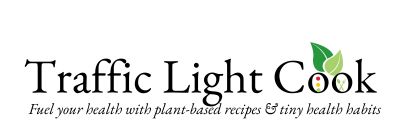

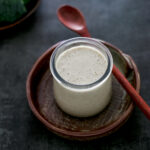
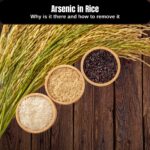

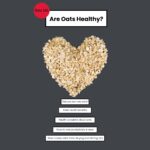


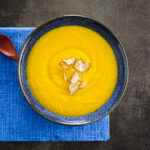
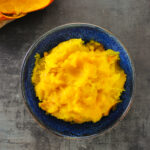
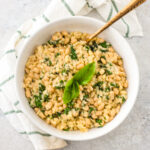
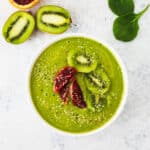
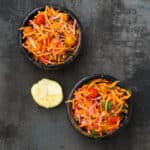
This is a very informative article about beets. I love using beets in my cooking. I used to roast beets by wrapping them in al foil and was not very comfortable with it because it could possibly leach into food. However, the method you suggested seems safer. Will try.
Hello Neena, I am glad you found the information in this blogpost helpful. A few scientific studies connect aluminum exposure(and yes pots, pans, and aluminum foil can add up) with Alzheimer's. Even though the evidence appears to be conflicting, it's better to err on the side of caution.